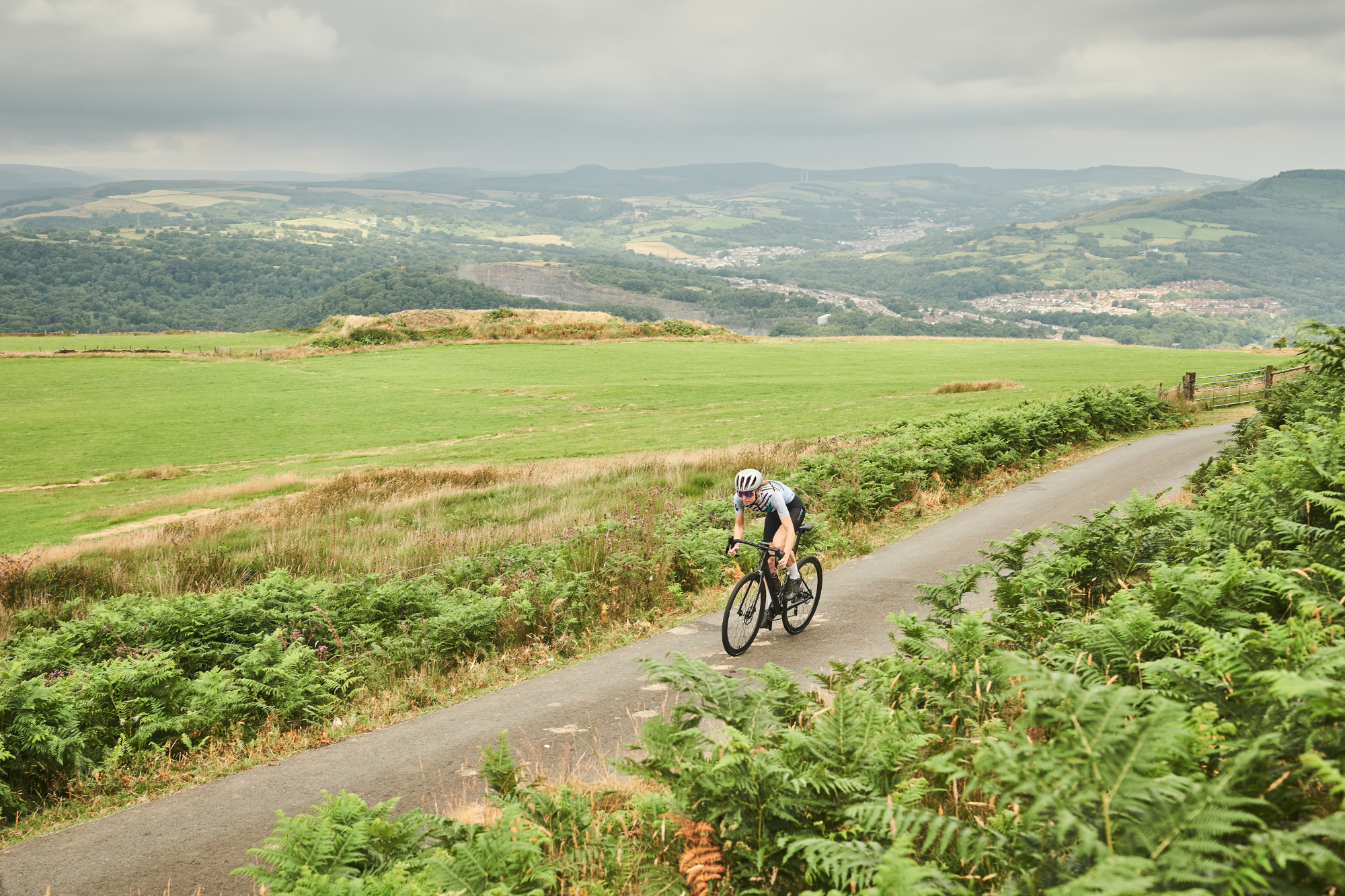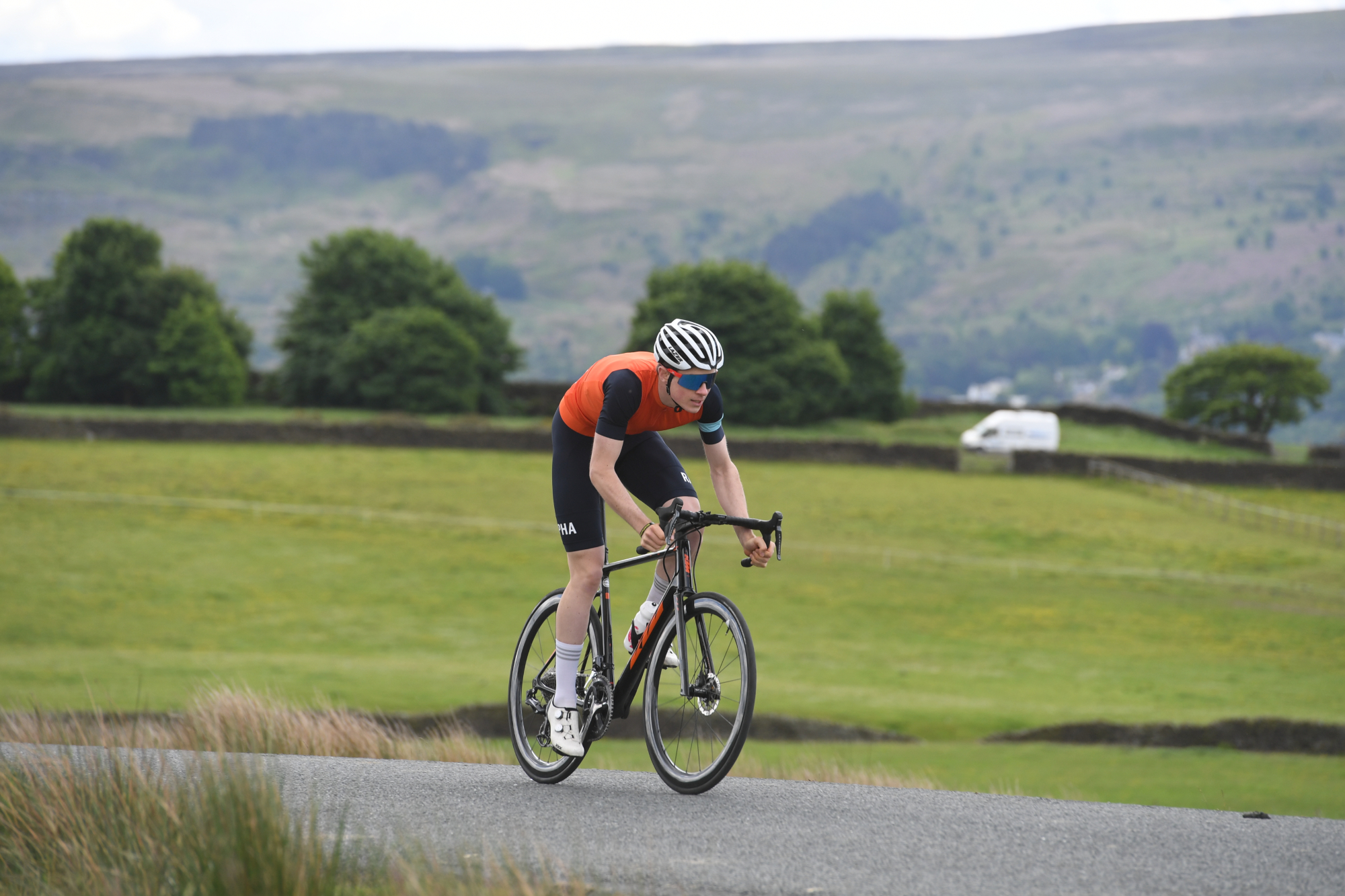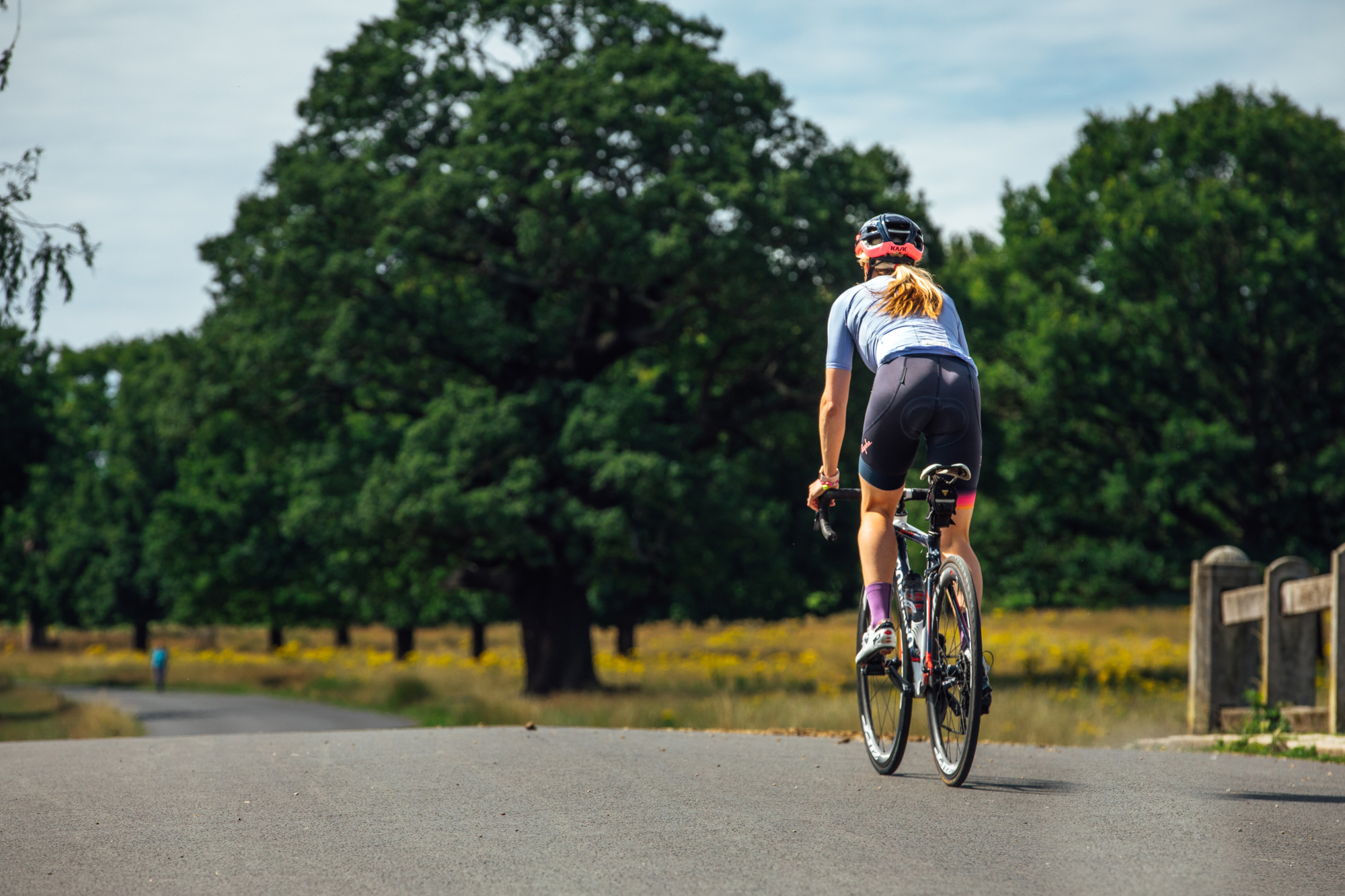Is your mentality holding you back? Ultra-endurance record holder shares how harnessing your emotions can make you a better rider
From shouting at a psychologist to cycling Portugal to Russia in 16 days - Leigh Timmis shares the record-breaking potential of Emotional Intelligence


The latest race content, interviews, features, reviews and expert buying guides, direct to your inbox!
You are now subscribed
Your newsletter sign-up was successful
Looking back on his preparation for breaking the world record for cycling across Europe, in 2018, one memory particularly stands out to Leigh Timmis. The 40-year-old recalls a member of his team telling him: “You can be the fastest cyclist in the world on the start line but it doesn’t mean anything unless you have the mind to get you to the finish line.” Timmis took this to heart and used his head to ensure his training embraced the emotional demands of the record attempt. It worked. By focusing on his emotional intelligence, the Derbyshire rider smashed the previous record by eight days, crossing the entire continent from Portugal to the Russian city of Ufa in just 16 days 10 hours.
Emotions are instinctive responses that function like signals, often directing our attention to whatever our threat system senses is most important at that time. Emotional intelligence (EI) is the ability to notice and understand our emotions and how to express them. This involves an exploration of the causes and consequences of our feelings, which can help us to regulate emotions so that they help rather than harm us. In short, EI is your capability to recognise emotion related problems through self-awareness by solving or mitigating them using coping strategies.
EI has been found to improve performance in all areas of life, including medicine, business and sport. This is because pleasant emotions (e.g. happiness, excitement) and unpleasant ones (e.g. anxiety, anger or frustration) can have a powerful impact on performance. Your speed, confidence and resilience on the bike are not solely determined by your physical fitness – an important component is how you feel about your riding on any given day, and so improving your EI is one of the ways of becoming a better cyclist.
Timmis believes that improving his EI was fundamental to his ability to break the European record – and will be for his next challenge too, cycling the greatest distance possible in seven days. The goal he needs to beat is 2,180 miles. “Working on my EI switched my focus from what I could achieve to what I wanted to achieve,” he explains.
Emotionally tuned-in

When we are tuned in to our emotions and those of the riders around us, we are better able to communicate and understand the nuances of social rides, for example noticing when others need our support or encouragement. It is just as important in races, and vital in a team environment. Studies have found that sportspersonship, moral competence and co-operation are all stronger in athletes with higher EI.
Gary Chaplin is celebrating his 50th year by taking on the challenge of riding 1,000 miles from his local bike shop, the Service Course in Wilmslow, Cheshire to the business’s HQ in Girona, Spain. Having realised that it was the sense of belonging and connection to others he most valued in cycling, he actively worked on his EI. “When I hear friends are struggling, I’ll suggest going out for a ride rather than heading to the pub for a pint,” he says. His EI work has also helped Chaplin control his emotions towards other road users. “Recently on a group ride we were cut up by a driver. I spoke to the guy in question very calmly, highlighted what he’d done, and reminded him that our group was filled with fathers, sons, brothers, uncles – not just ‘bloody cyclists’. He got out of the car and apologised to us.”
The serious challenges to mental health – anxiety, stress, fatigue, depression and burnout – are less likely to spiral out of control in athletes with higher levels of EI. Research has found that higher levels of EI buffer the impact of negative emotions. For cyclists, this is a win-win scenario, as it frees us to use our riding to positively impact our mental health.
The latest race content, interviews, features, reviews and expert buying guides, direct to your inbox!
Tommy Bustard strongly believes in the benefits of emotional intelligence. The 34-year-old Yorkshireman is a lifelong cyclist and host of the ‘Yorkshire Grit’ podcast, on which he has been very open about his mental health struggles – and how he has used EI in his riding. These days he won’t even get on his bike without first making sure his head is clear. “You need to be mentally ready,” he says. “Cycling can be hard, so you need to have everything ticked off: life, job, mental health, bills paid, to be in a place where you can justify a two or three-hour ride and therefore enjoy it. If I’m in a bad place mentally, getting on the bike can add to the negative feelings, so I know not to go out alone when I’m having unpleasant thoughts.”
Reframe the outlook

Being emotionally self-aware helps us to appraise stressful or tough situations, assessing them as a challenge rather than a crisis. This is important because if we see a race or session as a threat, the brain releases cortisol and adrenaline (stress hormones), setting off a strong physiological response within (fluttering stomach, high heart and breathing rates, tense muscles, etc). Being in a stress state makes it harder to perform well. When we reframe that same race or session as a challenge, we are able to stay focused on the tasks required and are more likely to experience positive emotions (excitement or enjoyment) with fewer of the negative, unpleasant ones.
To prepare himself for feelings of threat or anger during the world record attempt across Europe, Timmis used an approach called pressure training. “My physiologist and psychologist created an endurance threshold test: a four-hour lab ride with no distractions, with the resistance increasing each hour,” he explains. “There was monotony and pressure and discomfort. By the fourth hour, at close to threshold, I became overwhelmed by complex negative thoughts – I exploded and shouted at the physiologist!” It was a wake-up call for Timmis; he knew he could not let his emotions erupt during the record attempt. “From that moment, I saw the reality of my lack of emotional regulation. Until I saw it in myself, I didn’t understand the importance of it. Having that awareness of how I’d behaved allowed me to step back from what had happened and find better ways to handle it should similar citations arise.”
Research has shown that athletes with high levels of EI are better at setting and following goals. This may be because they have higher levels of self-confidence and fewer negative emotions before competitions – helpful psychological traits. These people are also more likely to use psychological strategies such as self-talk, imagery, emotional control and relaxation techniques, helping themselves to handle stress.
Having emotional intelligence is sometimes referred to as being emotionally literate. Like being able to read a complex text, someone with advanced EI is able to interpret how they are feeling and, if necessary, pick the most effective coping mechanism. You don’t need to be especially emotionally literate to recognise when you are feeling angry, but if your default response is to launch into a 60-minute sweat-fest on Zwift, then you’re at risk of overtraining – especially if you’re prone to anger. A far better response would be to analyse the deeper emotions beneath your anger; for example, perhaps you had fallen prey to a pang of jealousy or impatience which you might be able to reframe.
Pedalling into perspective

Finally, a huge benefit of EI is that it gives us perspective. It is so easy to judge a training session on the numbers or whether we seemed weaker than a friend. But often there are very good reasons for a drop in performance, though they may be hard to recognise while emotions are running high. Sports psychologist Prof Andy Lane conceives of emotions as changeable weather. “They often arrive for a specific reason but can also change quickly,” he says. “If you are good at identifying why you got into that emotional state, you’re better able to fix it.”
Lane adds an important reminder: “Our plans and decisions should be independent of the emotions we are feeling.” Instead of pulling out of a race because of a bad set of numbers, for example, it would be preferable to adjust goals or find a technical element to focus on. This allows you to evaluate situations more objectively so they become opportunities rather than threats.
Timmis is clear that his increased EI has made him more reflective, giving him a surprisingly nuanced perspective on his world record. “Now I have much more self-awareness, and in hindsight I understand that setting the record was about me trying to pursue endless excellence, to be the best, always trying to prove myself,” he says. “I sacrificed so much to do that, but now I realise the importance of the human behind the athlete. My next record attempt will be more about enjoying the process.”
Challenge self perception
Emotional intelligence is closely related to self-awareness. However, according to Prof Lane, many riders assume they are more self-aware than they actually are – and this is where other people come in. “Ask someone you spend time and trust, be it your coach, a family member or clubmate, how you come across,” suggests Lane, “and explore where the differences are between your beliefs about yourself and their perception.” Clearly this exercise could cause hurt feelings, hence the emphasis on trust and good faith.
The good news is that EI isn’t fixed – it’s malleable, and everyone has scope for improvement. Starting small can pay off: a 2014 study in the journal Coaching researched a group of netballers, half of whom undertook just 30 minutes of emotional intelligence coaching. Those who took the training came away more confident and less anxious.
Lane talks us through the steps to improving emotional intelligence. “Firstly, start to monitor your emotions throughout the day: the types and intensity of them, and the actions that arose from them. Keep a diary around them so you become more aware.”
If you are finding yourself constantly using fall-back emotional descriptors (angry, frustrated, happy, nervous, tired, fine, etc) then focus on growing your emotional vocabulary. With poor emotional literacy, we tend to use only a few emotional words and fail to accurately identify the specifics of the situation. When we are clear about how we are feeling, we’re better able to proactively pick the right strategy to handle our emotions, in ways that help us perform at our best.
You know you are making progress when you are able to identify emotional weak spots and formulate a plan around them. You can then design pressure-loaded sessions. You shouldn’t need to go as far as Timmis’s wake-up call in the lab, but slowly incorporating ways to make you struggle, cope and reflect will raise your EI and your performance.
3 emotionally intelligent approaches to training
Find the people who believe in you
Tommy Bustard regards this as a top priority: “I surround myself with people who have positive energy and bring out the best of me. I’m willing to drive for an hour and a half if it means I get to ride with the right people.”
Make the link between mind and body
The important one to look out for is excitement and anxiety. Physically, the feelings are the same; butterflies in the stomach, increased heart and breathing rate, cold sweats. But it is our brain instigating these effects.
Simple language choices can make a difference. Chris Hoy shares his tips for cyclists: “Never use the words nervous or anxious; use the words exciting and adrenalised.”
Keep a gratitude diary
Leigh Timmis updates his every day. “Instead of scrolling through my phone while I eat my breakfast, I jot down three things I am grateful for, plus a challenge I had the day before and a positive that I could take from it. When my mind starts being unhelpful during my morning Wattbike session, I have positives to override the ‘I can’t do this’ thoughts.
Are you in a right state or the right state?
Coach and three-time Race Across America finisher Jim Rees, 59, describes himself as ‘The EI guru’ (theeiguru.com).
How did your interest in EI begin?
I was adopted as a little boy and grew up in Australia. That’s where the whole thing started. I was abused by a close family member, and for a long time I was mangling myself physically [in sport] to get through the emotional turmoil.
When did EI become part of your job?
In 2000 I left the pharmaceutical industry and became an executive coach. That’s when I started taking a deeper interest in emotional intelligence, qualified with JCA Global, and ultimately set up my own coaching business. Neuroscience shows that EI approaches really do work, and my role involves observing and measuring people’s patterns of behaviour using questionnaires. Some of these patterns people will be already conscious of, others will be blindspots.
What is EI and how does it help?
The simple definition of emotional intelligence is having the ability to notice your feelings and then think about them rationally, rather than ignoring or suppressing them. If you’re feeling frustrated, you try to understand why, tweaking your behaviour to produce a different outcome. If you can manage your mental state more effectively, it will help you conserve mental energy.
This article was originally published in the 15 September 2022 print edition of Cycling Weekly. Subscribe onlineand get the magazine delivered direct to your door every week.
Dr Josephine Perry is a Chartered Sport and Exercise Psychologist whose purpose is to help people discover the metrics which matter most to them so they are able to accomplish more than they had previously believed possible. She integrates expertise in sport psychology and communications to support athletes, stage performers and business leaders to develop the approaches, mental skills and strategies which will help them achieve their ambitions. Josephine has written five books including Performing Under Pressure, The 10 Pillars of Success and I Can: The Teenage Athlete’s Guide to Mental Fitness. For Cycling Weekly she tends to write about the psychological side of training and racing and how to manage mental health issues which may prevent brilliant performance. At last count she owned eight bikes and so is a passionate advocate of the idea that the ideal number of bikes to own is N+1.
